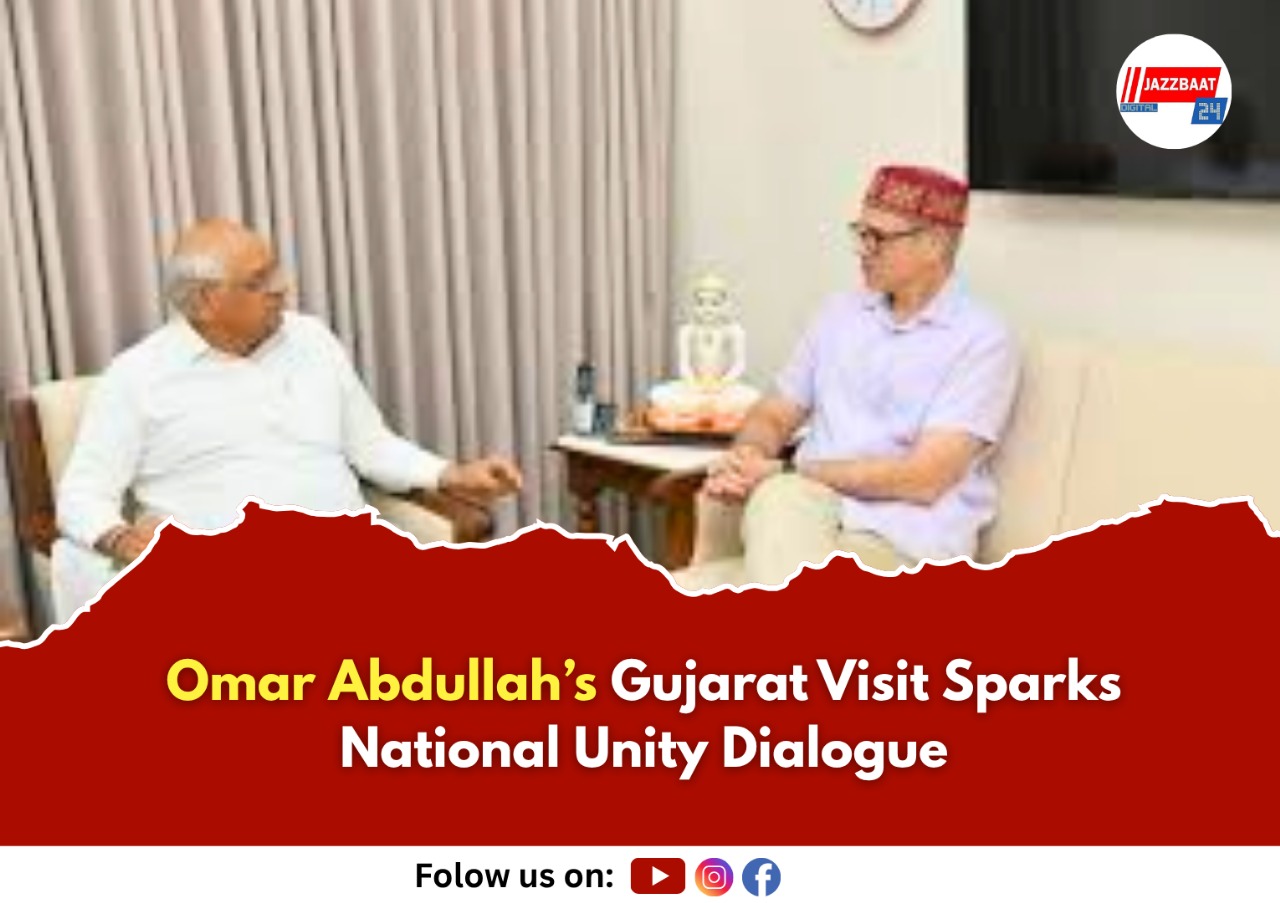
Ahmedabad/Vadodara:
Jammu and Kashmir Chief Minister Omar Abdullah visited Gujarat on a two day tour aimed at promoting tourism for his Union Territory. While in Ahmedabad, he shared a social media post about jogging along the Sabarmati Riverfront, which prompted Prime Minister Narendra Modi to commend the visit and describe it as conveying a powerful message of unity.
Omar Abdullah posted on X (formerly Twitter):
“While in #Ahmedabad for a tourism event I took advantage of being here to get my morning run at the famed Sabarmati River Front promenade. It’s one of the nicest places I’ve been able to run & it was a pleasure to get to share it with so many other walkers/runners. I even managed to run past the amazing Atal Foot Bridge.”
Prime Minister Modi responded, writing:
“Kashmir to Kevadia! Good to see Shri Omar Abdullah Ji enjoying his run at the Sabarmati Riverfront and visiting the Statue of Unity. His visit to SoU gives an important message of unity and will inspire our fellow Indians to travel to different parts of India.”
Abdullah replied to the Prime Minister:
“I am a firm believer that travel broadens the horizons & the mind @narendramodi ji. It’s especially important for us in J&K as tourism is a crucial part of our economy & has the potential to gainfully employ lakhs of people. That’s why I & my colleagues are trying to convince more of our fellow Indians to visit J&K, especially after the tragic events earlier this year.”
During his visit, Abdullah viewed the Statue of Unity at Kevadia, describing it as “a symbol of national pride” and stating that his respect for Sardar Patel deepened after seeing the monument in person. He reportedly took photographs using his mobile phone and called it “a truly magnificent” and “unique” experience.
Abdullah’s visit to Gujarat coincided with a tourism promotion event organised by the Travel Agents Society of Kashmir (TASK) in Ahmedabad. He addressed attendees and engaged with tour operators and industry stakeholders to rebuild confidence in Jammu and Kashmir as a safe and inviting destination.
He acknowledged the impact of the Pahalgam terror attack earlier in the year on tourism, noting that international and domestic tourists had initially departed in large numbers. However, he reported that flight operations at Srinagar airport have recovered from just around fifteen daily arrivals to approximately thirty per day—still short of the 50‑55 flights seen before, but a marked rebound.
Abdullah confirmed that his administration has conducted a comprehensive security audit of key tourist sites. He said secure areas have been reopened to visitors, while vulnerable locations remain restricted as a precaution. Emphasising Gujarat’s long standing contribution to tourism in Jammu and Kashmir, he expressed hope that Gujarati tourists would continue the 35 to 40 year tradition of travel to the region.
He also visited the Sardar Sarovar Dam at Kevadia, where he praised the project for transforming drought‑prone land into irrigated areas. Abdullah drew a parallel with Jammu and Kashmir, expressing optimism that similar projects may now be possible following the suspension of the Indus Water Treaty.
Analysts view the exchange between Omar Abdullah and Prime Minister Modi as noteworthy given the usual political differences. Comments that highlight the symbolic power of monuments such as the Statue of Unity suggest a shared narrative of national integration. Abdullah’s public advocacy of travel as a unifying force aligns with his broader push to revive Jammu and Kashmir’s tourism sector and economy.